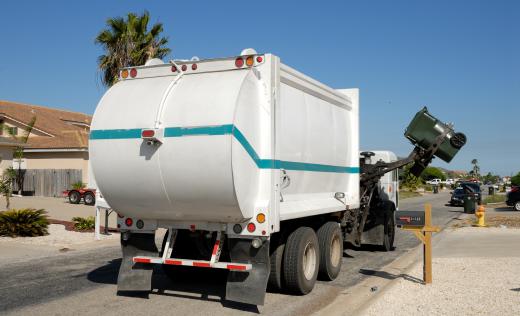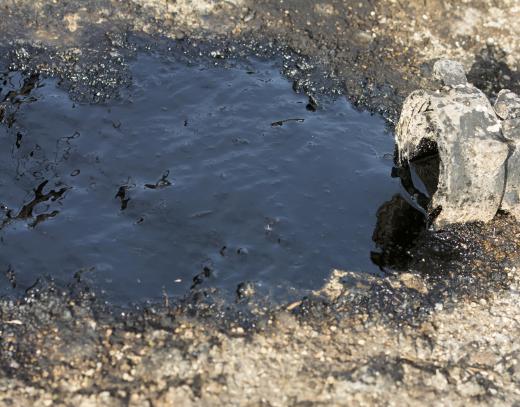Hydraulic oil is the fluid used to power hydraulic systems in applications as diverse as automobile brakes, garbage truck lifts, and aircraft flight controls. There are many different fluids used for this purpose, including mineral oil, water, synthetic compounds, and water-based mixtures to name a few. The basic oil stock could be glycol, castor oil, ethers, esters, organophosphate ester, mineral oil, polyalphaolefin, and silicone or propylene glucol. Mixtures are created with chemicals and synthetic products according to what the oil will be used for. Hydraulics makes it possible to move heavy or resistant objects with ease.
When hydraulic oil is used in machinery where an oil spill might harm the environment, biodegradable forms are used. These are made of a vegetable oil base, usually rapeseed oil, rather than a petroleum or chemical base, so that if there is a spill, it will not harm the environment. Biodegradable hydraulic oil is often used in farm tractors, earthmovers and boats, as well as in timber cutting and processing applications.

For most people, the most common use for hydraulic oil is in the braking system and the power steering assembly of automobiles. The oil used for these applications is usually mineral-based with low compressibility. Since a hydraulic system circulates the fluid in and out of a fixed reservoir, the oil must have little or no compressibility, making it possible to reuse it over and over. This circulation process also allows the system powered by the hydraulic oil to be easily controlled and accurately positioned.

All hydraulic systems have a power source that activates a pump to move the hydraulic oil through the system. Hydraulic pumps come in various sizes from the small pumps in automobiles to huge industrial pumps for construction machines. In the same way, there are many different sized engines and electric motors to provide power to the hydraulic pumps.

In aircraft, the oil used must be able to withstand great temperature changes. Several companies manufacture and supply aircraft hydraulic oil with special additives for anti-wear and temperature change capabilities. The engine or electric powered hydraulic pumps in aircraft assist the pilot in moving control surfaces in the air, as well as providing hydraulic assisted braking and steering systems on the ground. In military aircraft equipped with the M61 cannon, hydraulics are actually used to operate the gun.
